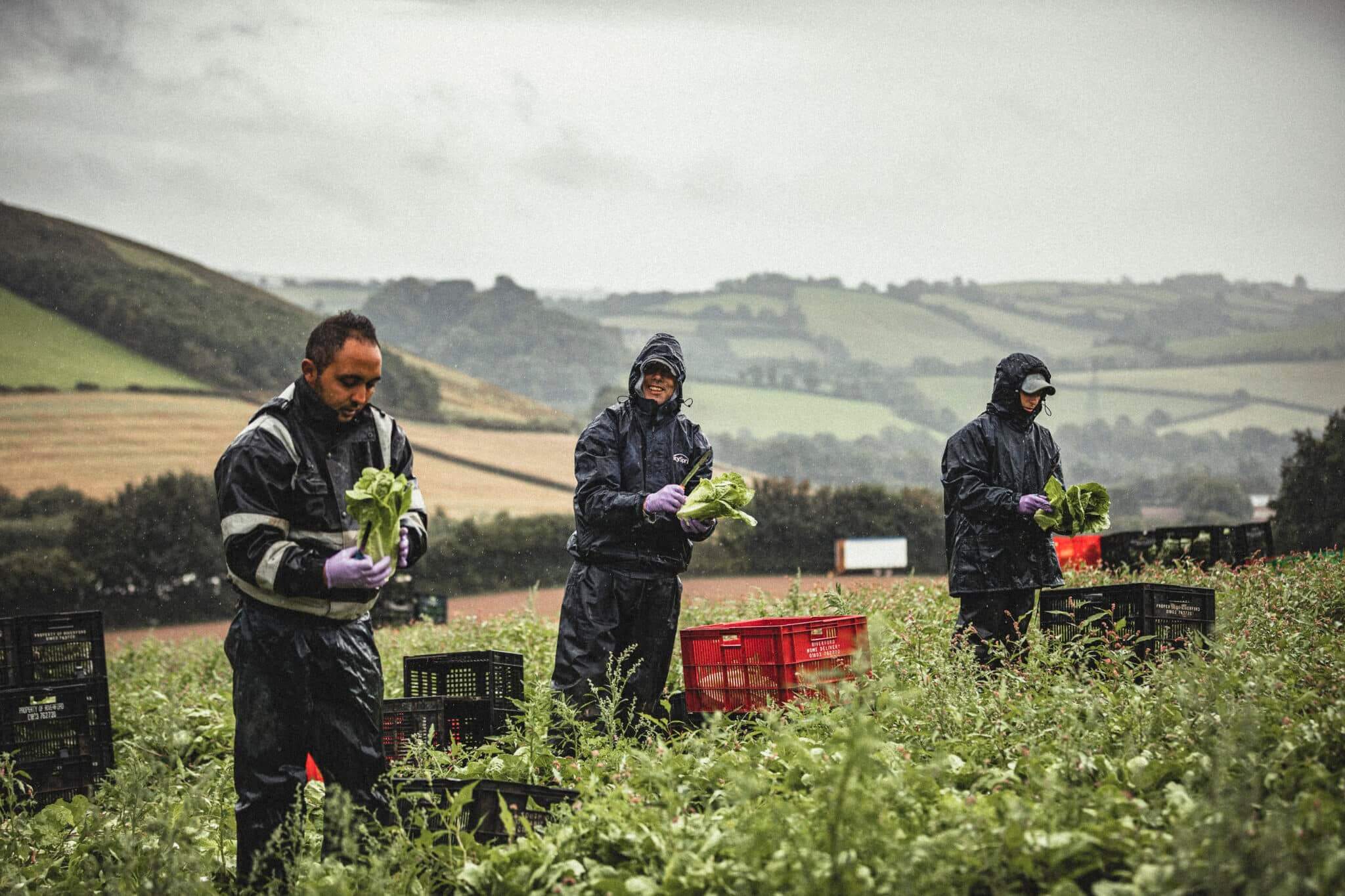It’s 50 years since I first laid a hedge, taught by a farming veteran who claimed to have ploughed every field in the parish with a horse. With half a mile to lay this winter, I have to pace myself; two hours wielding the chainsaw and billhook, however satisfying, are enough for this 63-year-old (four years older than average) farmer.
Interspersed with the hedge laying, I am meeting potential trainees to join our team in the new year as students of regenerative agriculture. A far cry from the conservative, Barbour-and-tweed agricultural students of my youth, these are all thoughtful, radical young people making sharp turns in their careers – wanting to be part of the solution, rather than part of the problem.
None come from farming backgrounds, so we start the interviews by emphasising the repetitive, physically demanding nature of picking broccoli in January or strawberries in June – and the need to keep up with the battle-hardened, more experienced pickers.
Ten years ago, I would have been speaking to hopelessly unrealistic lifestylers with no concept of farm work, who would not have lasted a week. Today, they have a new determination and realism; perhaps born out of the desperate state we are in, combined with the woeful lack of action they see around them. Saving this planet will take practical skills, hard work, and humility beyond the imagination of most.
In the 1980s, when I gave up my life as a management consultant in New York to return to 60-hour weeks and a damp cottage with an outside bathroom, the countryside was already draining of the highly skilled, but undervalued and underpaid, workers needed to run complex mixed farms. Machinery and agrochemicals took their place, as farms grew ever larger and more specialised – helped by the arrival of skilled Eastern European labour in the 1990s. As they too are driven out, we are facing the question: who will grow our food, lay our hedges, maintain our trees? Who will replace farmers, who now have an average age of 59? Who will transition this industry to meet the needs of a climate and biodiversity crisis?
As much as I admire the courage of our idealistic new entrants, they have a skills mountain to climb. This would be much easier if those who had grown up on the land, plus a few Eastern Europeans, could be persuaded to stay to help them. How do we achieve that? Less romanticisation of a long-lost bucolic idyll, plus better pay, would be a good start.










There must be a whole generation (or two) of us who grew up on the smaller farms from the 60s onwards, who didn’t (and weren’t encouraged) to stay and find a way of making things workable, at home on the land.
I’ve passed the 60 milestone now too, but I still describe myself as a farmer’s daughter, and it’s a really important part of who I am.
I am sure there are many like myself who retain a love for the land and have some atavistic understanding of it. We’ve worked in everything other than farming in our adult years but did the hard work of haymaking every year in the evenings after school and in the holidays before we left home completely. We’ve helped to herd the cows home along the village roads and stopped the occasional car for them as they return for milking. We’ve been on our own in the rain and the mud with the pile of things that have to be planted today with a piece of ground, prepared for that purpose, looking like defeat but slowly coming together, especially when someone else stopped to help out, just because they were passing. We’ve made mistakes when left to our own devices and made a small but significant crop fail for a season because it was assumed we knew what to do, when we didn’t (yes, that was me!).
I can’t think at the moment how we can help, but it feels that we may be an untapped resource and ought to be able to contribute somehow.
At 66 with bad knees I can only offer ideas not fieldwork. But here’s one: I’ve long dreamed of harvest [or other jobs] ‘camps’ on Riverford farms. These would enable anyone who just wants to help at particularly busy times to do so, in exchange for very basic accommodation somewhere close by, and maybe some basic meals. As with other such get togethers, maybe a few who can cook could contribute by doing the catering for the rest. This would give a chance for people with no, or too little, experience to live the reality if only for a few days. It would have to be worked out in some way that is fair to the paid workers.
Comments on the whole idea please.
Oh, perhaps I can help with that catering? I can still prep veg pretty well as long as I can sit down most of the time.